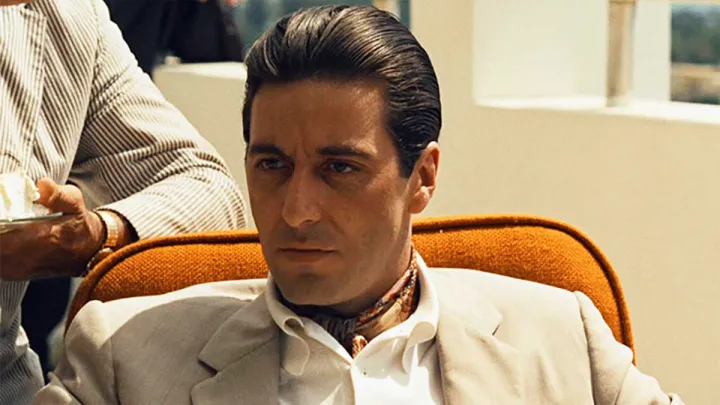
With the recent announcement that Oscar winner Al Pacino will star in Bernard Rose’s Lear Rex as King Lear, a classic valedictory role for a performer at the end of a storied career, now seems a worthwhile time to examine the filmography of an actor whose emergence onto the scene in the 1970s was as seismic an event in the film industry as that of any who came along before or since.
Over a half-century, Pacino has starred in in almost every kind of movie imaginable. Along the way, he’s given us wealth of great performances that will stand the test of time. The following is a highly subjective list of the greatest films starring Al Pacino.
7. Glengarry Glen Ross (1992)
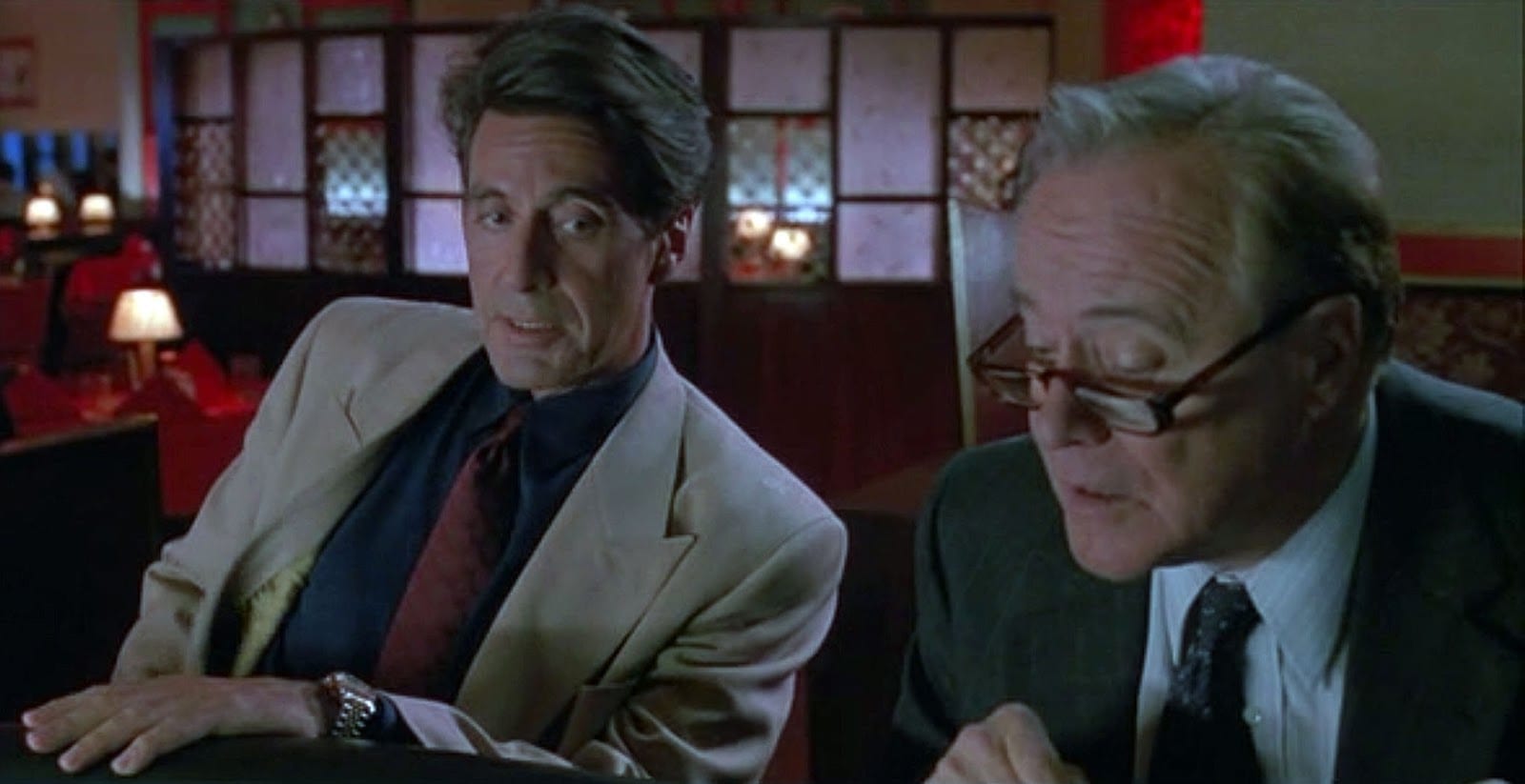
Playing hotshot salesman Ricky Roma, Pacino is in his element here as a cocky, condescending overachiever in a pathetic, but cutthroat Chicago real estate firm. In the symphony of sleaze that is David Mamet’s screenplay, which is based on his own play, every character is a different model of wheedling, loathsome irascibility, but Roma, a role originated on the American stage by Joe Mantegna, stands out because he’s achieved a degree of success in his milieu.
Opposite an all-time cast including movie legend Jack Lemmon, Alan Arkin, Ed Harris, Alec Baldwin, and (it must be reluctantly acknowledged) Kevin Spacey, Roma is an avatar of Pacino’s status as renegade artist-king of a Hollywood he helped create.
6. Once Upon a Time in Hollywood (2019)
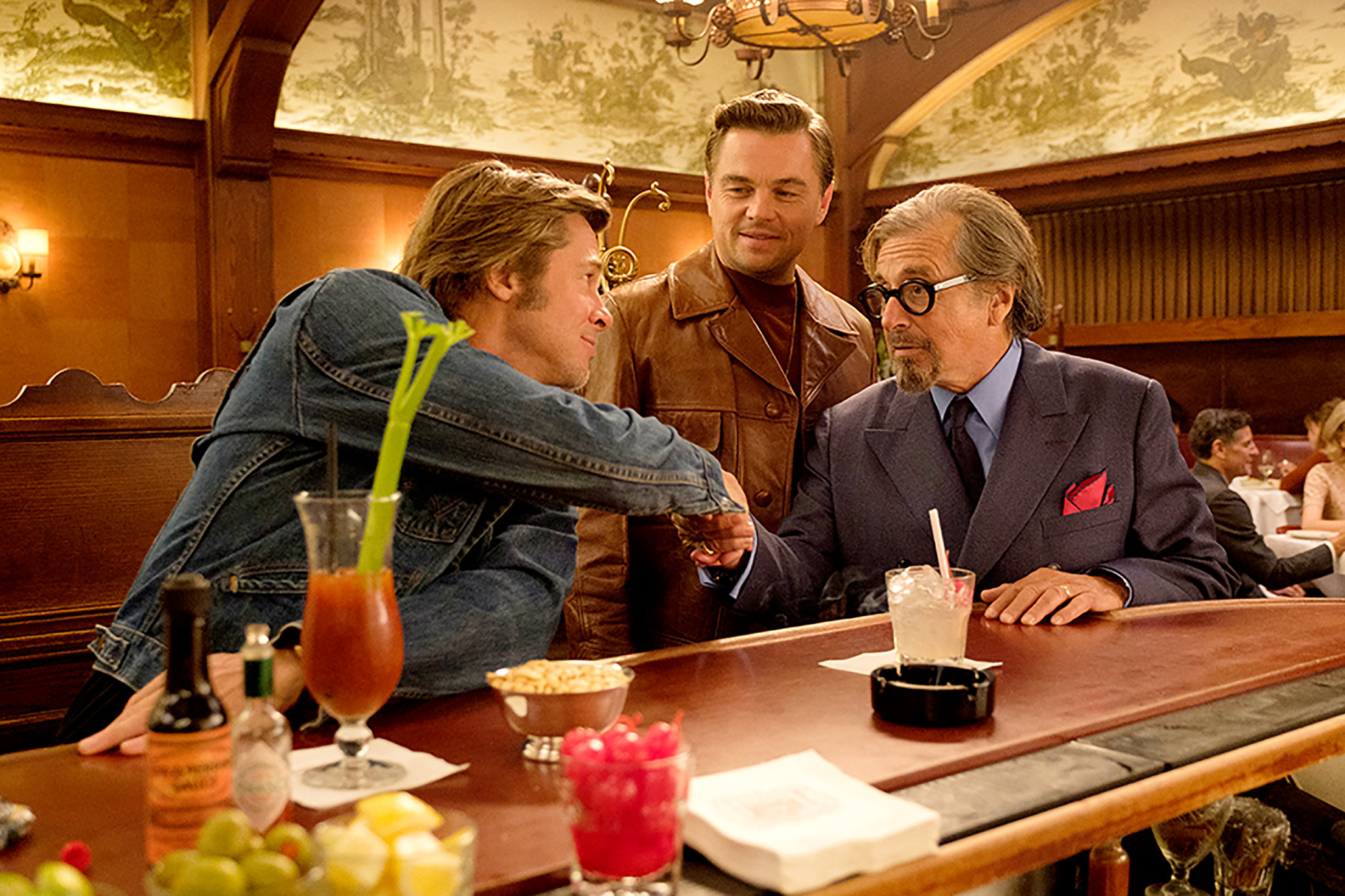
Pacino’s minor role as endearingly sincere super-agent Marvin Schwarz in this late-career Tarantino film that the director considers his best is emblematic of Pacino’s career in the years between Insomnia (2002) and The Irishman (also 2019). It’s an eccentric supporting role making use above all of Pacino’s legend, which itself is as powerful a force as his talent at this point in movie history.
This excellent alternate-history version of the Manson murders, set in 1969, is perfectly suited in tone and subject matter for Pacino, who made his film debut in that year.
5. Heat (1995)
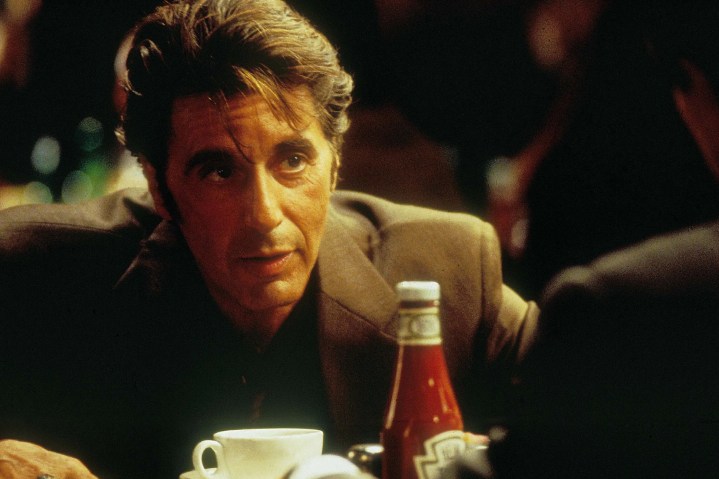
Among the series of world-beaters Pacino shot in the 1990s (a remarkable comeback given a string of ‘80s flops that led the actor to take a four-year hiatus from the screen), none shines brighter than Heat, the serious-minded, but ravishingly fun LA crime drama from one of the genre’s masters, Michael Mann.
Given his first chance to play scenes opposite Robert De Niro, the other Italian-American icon of 1970s gangster cinema and Pacino’s closest corollary on the screen, Pacino delivered a twitchy, mystifyingly non-Oscar-nominated performance that includes perhaps the single greatest line delivery in cinema. When suspect Hank Azaria wonders aloud how he ever “got mixed up” with a troublesome dame, Pacino’s coke-addled cop widens his eyes like a Halloween mask and bellows “’Cause she got a great ass!” Perfect. No notes.
4. Serpico (1973)
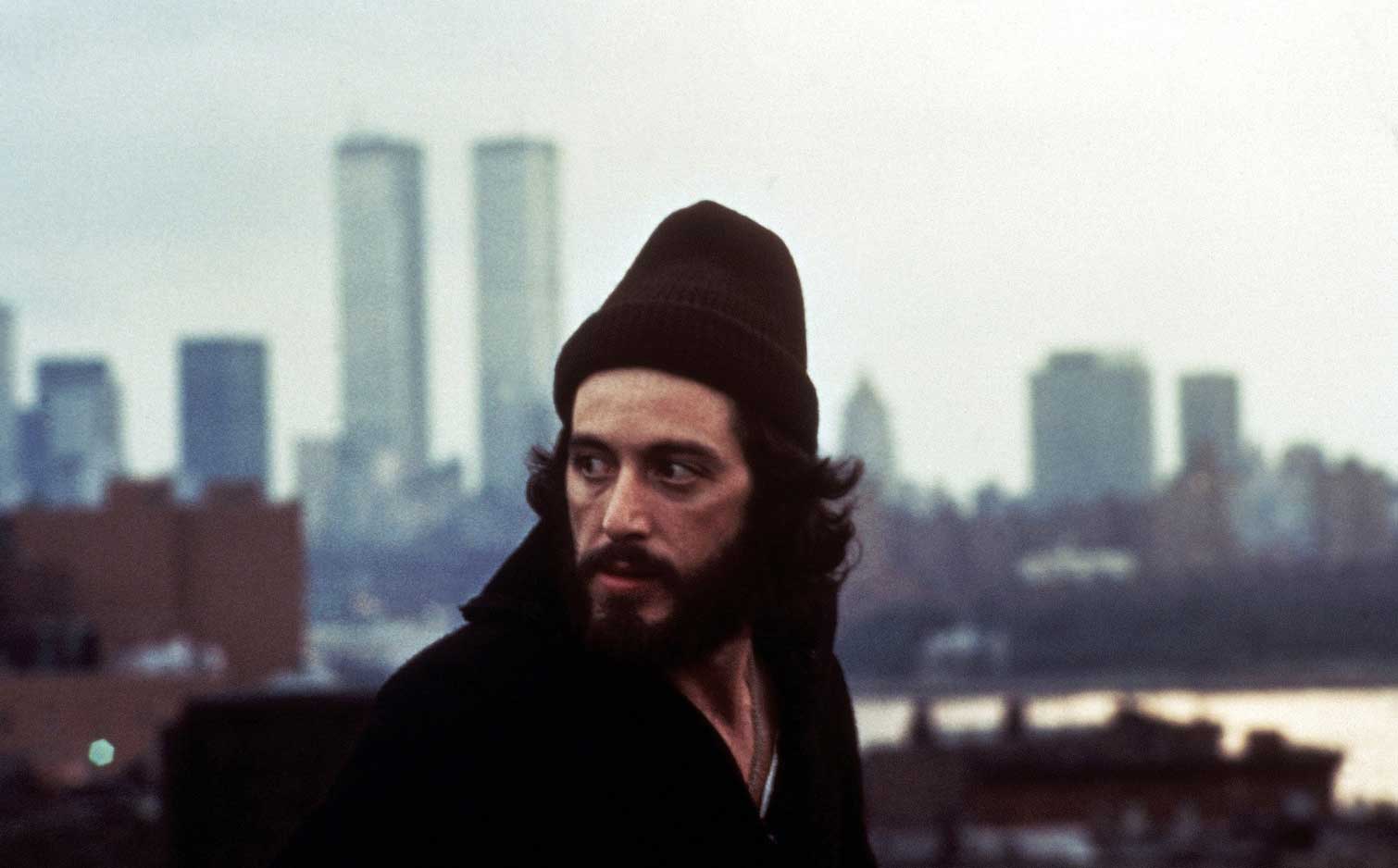
Other than Francis Ford Coppola, no one had a better sense of Pacino than director Sidney Lumet, whose two 1970s New York crime films starring Pacino cast the actor first as a cop and then as a robber while the filmmaker explored the rough-hewn essence of the city’s decline.
As real-life NYPD whistleblower Frank Serpico, Pacino initiated another of his career’s enduring archetypes – the shambling, unstable crusader (later to be echoed in …And Justice for All and The Insider, among others).
3. The Godfather (1972)
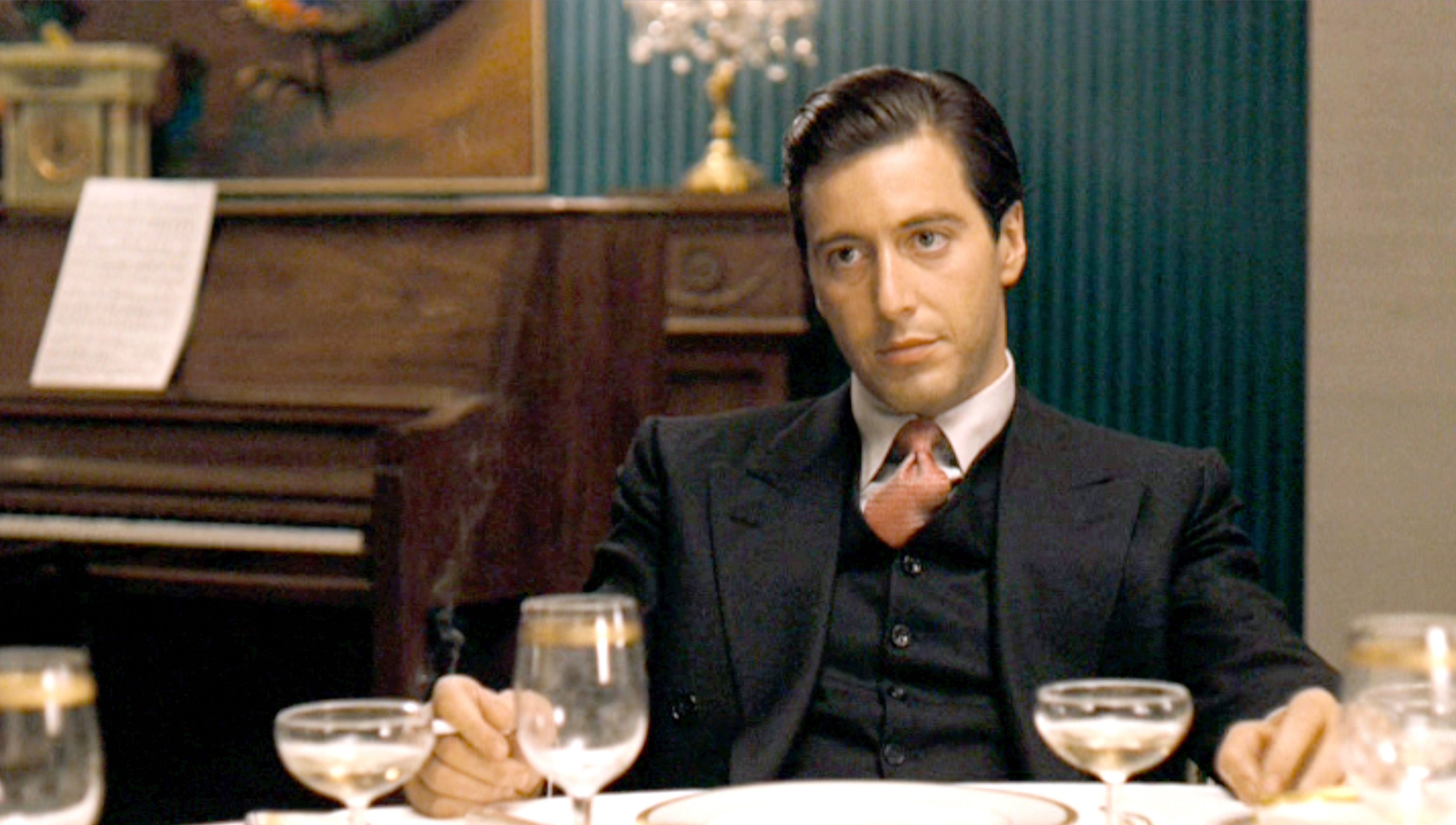
In just his third on-screen performance, the 31-year-old Pacino – small, dark, hushed, and unreadable – changed the definition of what a leading man should be as golden child-turned-Mafia boss Michael Corleone in Coppola’s enduring masterpiece.
Faced with unrelenting studio resistance to this unknown and unconventional lead, Coppola stood his ground, and ushered into being one of the most quietly insistent master classes in acting ever committed to celluloid.
2. The Godfather Part II (1974)
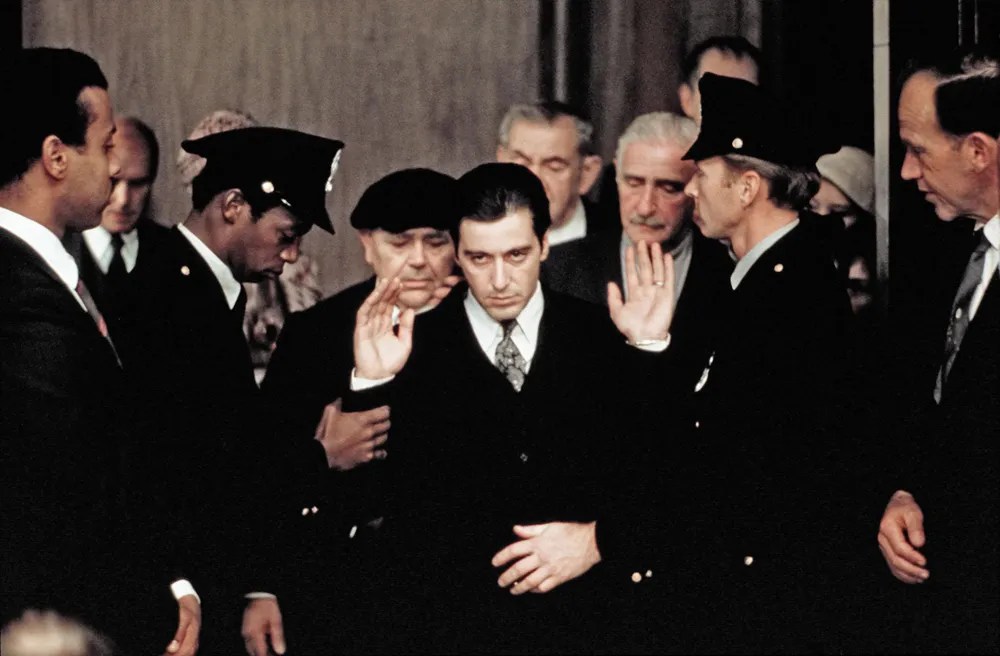
Coppola never wanted to make a sequel to The Godfather, but when his ever-present money troubles brought him back to the table, Pacino and most of the original cast (save Brando) came willingly along.
The Godfather Part II’s superiority to its predecessor is now widely acknowledged, and much of the credit goes to Pacino’s performance — less tentative, more kingly — as Michael moves from the outskirts to the center of his own new world.
1. Dog Day Afternoon (1975)
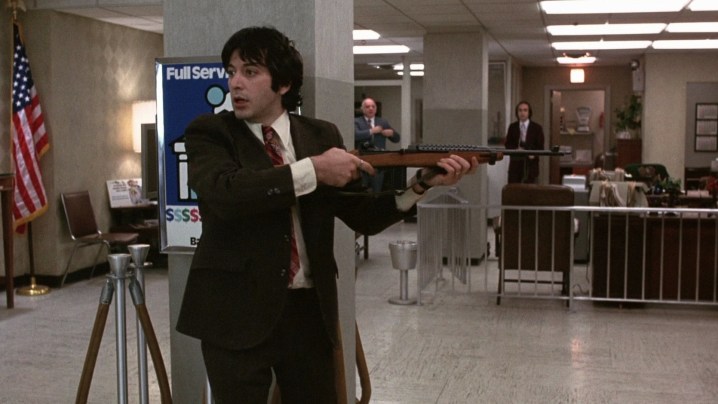
No heist movie, whether the heist involved is successful or no, has ever achieved the heart-pounding, sweat-drenched intensity that Lumet and Pacino did in their other 1970s collaboration, Dog Day Afternoon. Based on the real-life, but ill-fated robbery of the Gravesend Chase Manhattan Bank in 1972 by John Wojtowicz (renamed to the more pronounceable Sonny Wortzik for the film), Dog Day Afternoon is a showcase for the irrepressible Pacino in a film concerned above all with ground-level detail.
As perceptive about the realities of American criminality and law enforcement as any film ever made, Lumet’s film is nearly perfect, and so too is Pacino.



